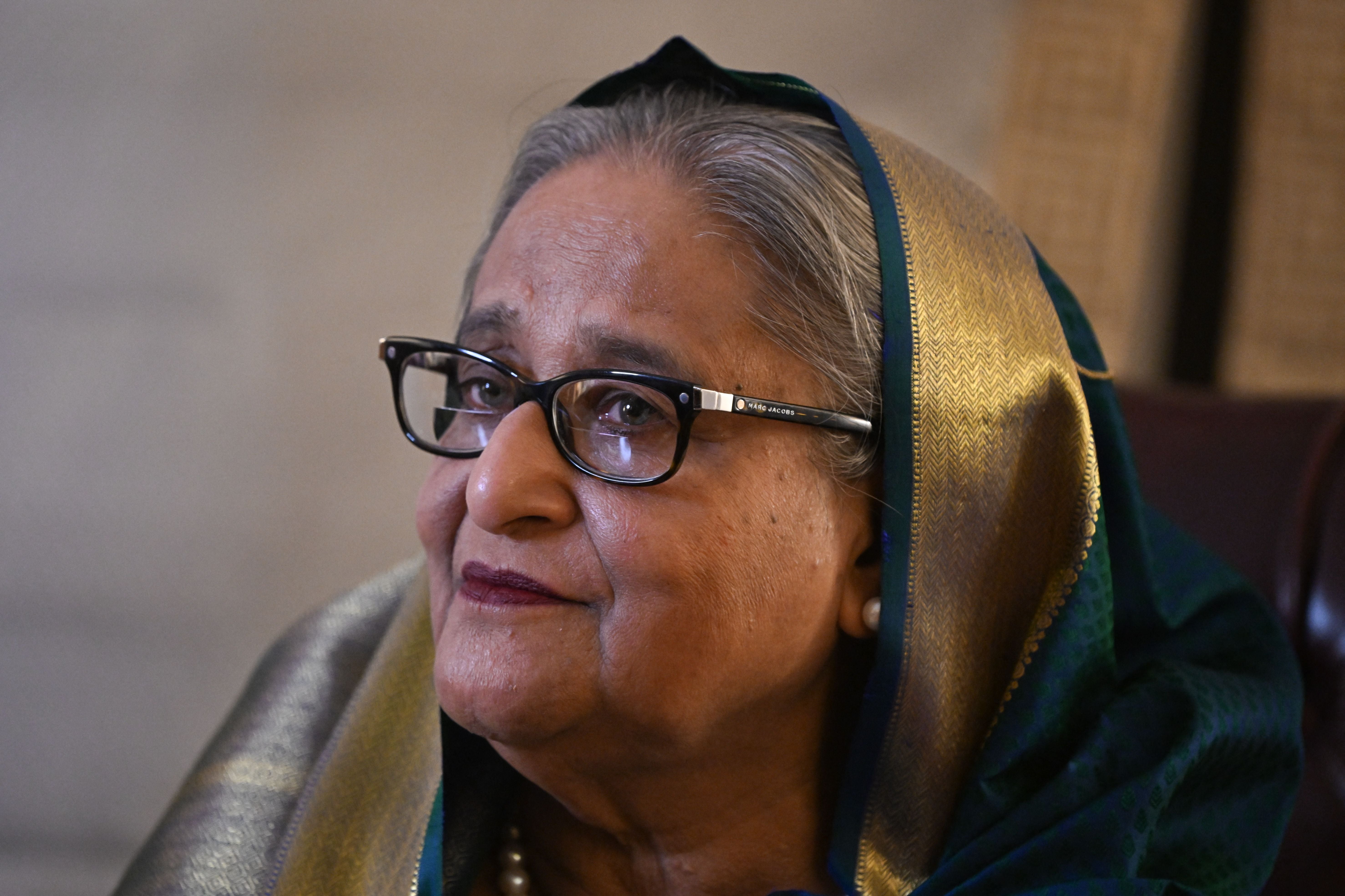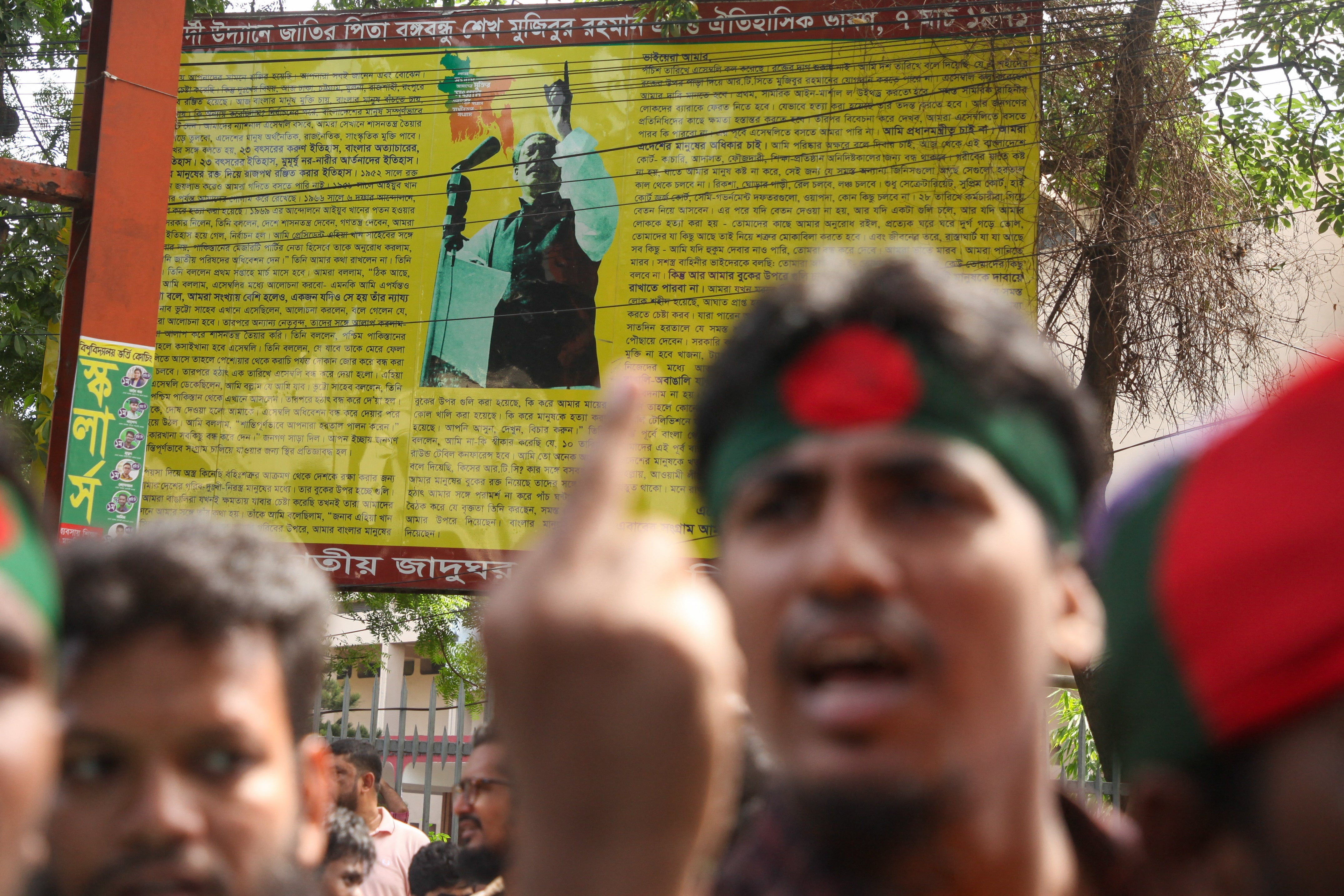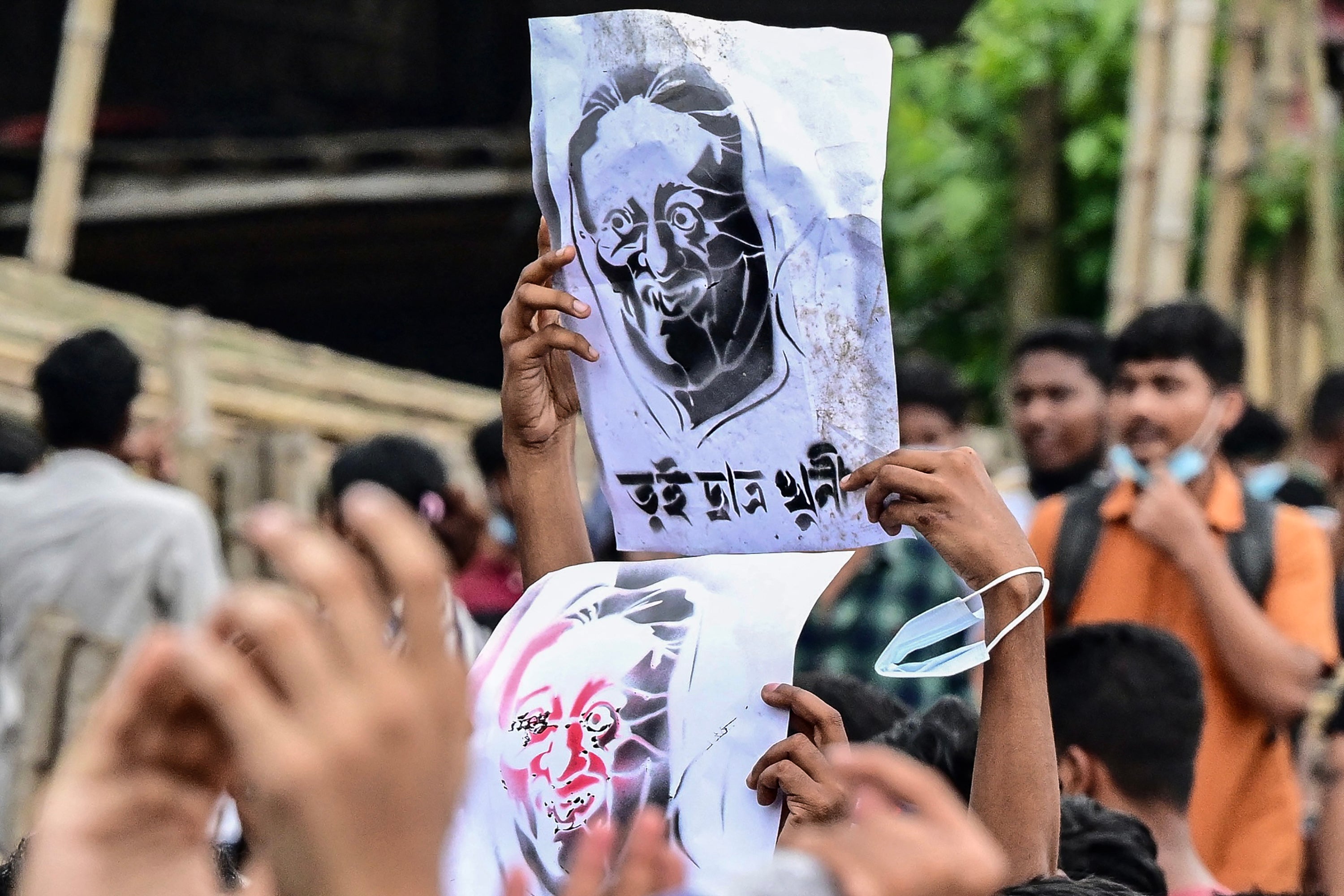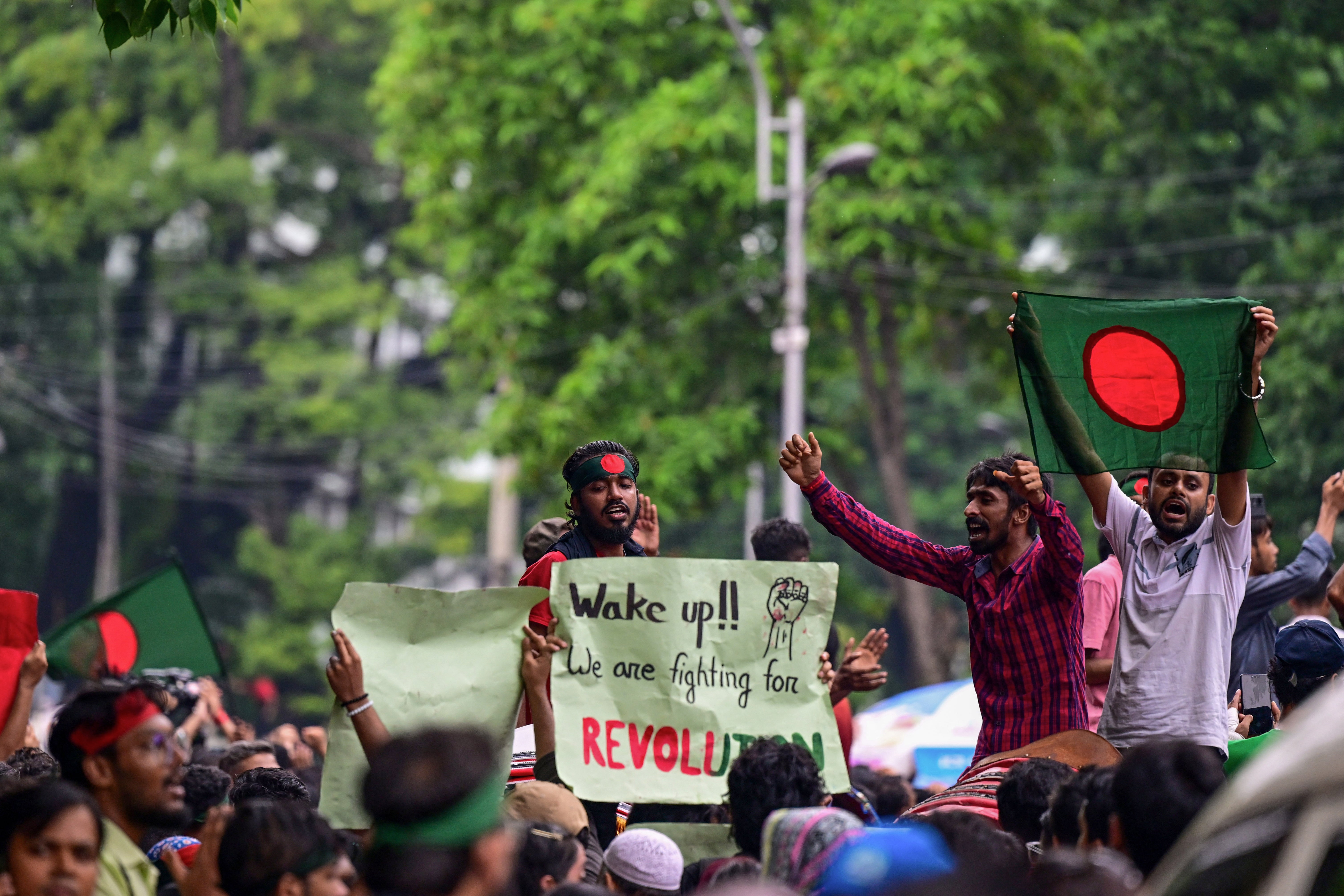Sheikh Hasina: The woman who ruled Bangladesh with an iron fist for 15 years
Prime minister has fled the country after protesters demanding her removal stormed her residence

Your support helps us to tell the story
From reproductive rights to climate change to Big Tech, The Independent is on the ground when the story is developing. Whether it's investigating the financials of Elon Musk's pro-Trump PAC or producing our latest documentary, 'The A Word', which shines a light on the American women fighting for reproductive rights, we know how important it is to parse out the facts from the messaging.
At such a critical moment in US history, we need reporters on the ground. Your donation allows us to keep sending journalists to speak to both sides of the story.
The Independent is trusted by Americans across the entire political spectrum. And unlike many other quality news outlets, we choose not to lock Americans out of our reporting and analysis with paywalls. We believe quality journalism should be available to everyone, paid for by those who can afford it.
Your support makes all the difference.Sheikh Hasina, Bangladesh’s prime minister of 15 years, has fled the country after protesters demanding that she step down stormed her residence on Monday.
Ms Hasina, 76, reportedly handed over the country’s reins to the military before flying out in a helicopter to India, her strongest ally, bringing to an ignominious end her iron-fisted rule.
Bangladesh, a country of 160 million people, plunged into turmoil in late June when Ms Hasina’s government launched a crackdown on mainly student protesters demanding the rollback of a contentious quota system for government jobs. The crackdown saw dozens of protesters killed, many more injured and thousands detained.

After the Supreme Court slashed the jobs quota for relatives of veterans of the 1971 war of independence with Pakistan from 30 per cent to 5 per cent, the protests subsided, only to erupt more strongly this weekend.
At least 95 people were killed on Sunday as the protesters clashed with security forces, taking the death toll in the demonstrations to more than 300.
Taking power after ‘trauma’
The unrest that forced Ms Hasina to flee was an eerie reminder of the mob rampage at her home during the bloody military coup almost 50 years ago that ended in the assassination of her father, Sheikh Mujib Rahman, who was Bangladesh’s first prime minister.
Ms Hasina lost 18 members of her family and its household staff in the coup. She weaponised the trauma, says Dr Avinash Paliwal, a senior lecturer at Soas University of London who specialises in south Asian strategic affairs. He describes this as her “one very powerful quality” as a politician.
Proudly bearing her status as the daughter of Bangladesh’s founder, Ms Hasina came to power in 1996, but she lost the next election in 2001.
Imposing an iron grip
She returned as prime minister in 2009 and promptly went about tightening her hold on power. She was widely accused of muzzling dissent, carrying out extrajudicial killings, shrinking press freedom and cracking down on civil society.
Her Awami League party won the 2014 election almost unopposed after opposition parties boycotted the election over allegations of vote rigging. It was the same story in 2018.

Ahead of the national election in January this year, the Hasina government allegedly arrested nearly 20,000 workers of the Bangladesh Nationalist Party. The mass arrests led to protests by the main opposition party’s members, inviting a violent state response.
The party’s leader, former prime minister Khaleda Zia, was “on the brink of death” under prolonged house arrest, the opposition alleged in June last year.
Human rights groups accused Ms Hasina’s administration of forcibly disappearing her critics – an allegation she denied.
After her inauguration as prime minister for a fourth consecutive term, observers noted many red flags of impending trouble in Bangladesh.
“There’s a history of an autocratic slide in Hasina’s decision-making,” Dr Paliwal said at the time. “The current elections may be a final stamp on a full-blown one-party state.”

Chequered human rights record
In 2023, Amnesty International criticised the Hasina government for human rights violations, not least her jailing of critics and journalists under the draconian Information and Communication Technology Act of 2006.
Ms Hasina accused the country’s largest newspaper, Prothom Alo, of being an enemy of the Awami League, democracy, and the people of Bangladesh.
“The government intensified its crackdown on the rights to freedom of expression and peaceful assembly ahead of general elections scheduled for January 2024,” the group said in its annual report.
“Authorities used powers in the Digital Security Act and other legislation to target journalists and human rights defenders, subjecting them to arbitrary detention and torture. There was a concerning increase in enforced disappearances and lack of accountability for deaths in custody.”
This record was characteristic of Ms Hasina’s rule, experts said.
She tallied a long list of political enemies even as she survived 19 assassination attempts and had “no safe exit”, according to Zillur Rahman, director of the Centre for Governance Studies in Dhaka.
“She is always under threat,” he said, “and she has to be in power.”








Join our commenting forum
Join thought-provoking conversations, follow other Independent readers and see their replies
Comments